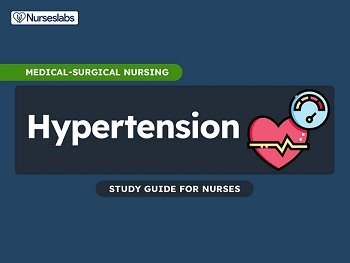1#- introduction Demystifying Blood Pressure
When it comes to maintaining your overall health, understanding your blood pressure readings is paramount. High blood pressure, or hypertension, is a leading risk factor for heart disease, stroke, and other serious health issues. Conversely, low blood pressure can also have adverse effects on your well-being. In this comprehensive guide, we will unravel the complexities of blood pressure, helping you understand what those numbers mean and how to manage them effectively.


#Why Blood Pressure Matter
Before diving into the intricacies of blood pressure readings, it’s essential to grasp why it matters. Your heart pumps blood, supplying oxygen and nutrients to your organs and tissues. Blood pressure is the force exerted by the blood against the walls of your arteries. This force is essential for blood to flow and reach its intended destination.
When your blood pressure is too high (hypertension) or too low (hypotension), it can disrupt the delicate balance required for your body to function optimally. Hypertension is often called the “silent killer” because it usually has no noticeable symptoms until it has caused significant damage. On the other hand, hypotension can lead to dizziness, fainting, and fatigue.
#Understanding Blood Pressure Readings
Blood pressure is typically measured in millimetres of mercury (mm Hg) and is presented as systolic and diastolic. These two values represent different aspects of your cardiovascular health.
- Systolic Pressure: represents the force exerted on your artery walls when your heart beats or contracts; it is the top number in your blood pressure reading. It’s often called the “working” phase of your heart’s cycle.
- Diastolic Pressure: The bottom number, diastolic Pressure, reflects the force on your artery walls when your heart rests between beats. This phase is essential for your soul to rest and refill with blood.
Understanding the Numbers
Now, let’s delve into what these numbers mean:
| BLOOD PRESSURE CATEGORY | SYSTOLIC mm Hg (upper number) | and/or | DIASTOLIC mm Hg (lower number) |
|---|---|---|---|
| NORMAL | LESS THAN 120 | and | LESS THAN 80 |
| ELEVATED | 120 – 129 | and | LESS THAN 80 |
| HIGH BLOOD PRESSURE (HYPERTENSION) STAGE 1 | 130 – 139 | or | 80 – 89 |
| HIGH BLOOD PRESSURE (HYPERTENSION) STAGE 2 | 140 OR HIGHER | or | 90 OR HIGHER |
| HYPERTENSIVE CRISIS (consult your doctor immediately) | HIGHER THAN 180 | and/or | HIGHER THAN 120 |
- Normal Blood Pressure: A regular blood pressure reading typically falls below 120/80 mm Hg. This signifies that your heart is effectively pumping blood, and your arteries are not experiencing excessive strain.
- Elevated Blood Pressure: Readings between 120/80 and 129/89 mm Hg are considered elevated. It suggests you risk developing high blood pressure if you don’t take preventive measures.
- Hypertension Stage 1: Blood pressure readings between 130/90 and 139/89 mm Hg indicate stage 1 hypertension, and you should discuss these with your healthcare provider.
- Hypertension Stage 2: Readings at or above 140/90 mm Hg are classified as stage 2 hypertension, requiring prompt medical attention and intervention.
- Hypertensive Crisis: If your blood pressure surpasses 180/120 mm Hg, it’s considered a hypertensive crisis, which demands immediate medical attention. This can lead to severe health complications.
#Factors Affecting Blood Pressure


Understanding your blood pressure readings also involves acknowledging the various factors that can affect them. Some of these include:
- Age: Blood pressure tends to increase, and maintaining healthy levels becomes increasingly important as you age.
- Genetics: Family history can significantly affect your blood pressure levels. You may be at a higher risk if hypertension runs in your family.
- Lifestyle Choices: Diet, physical activity, smoking, and alcohol consumption can all impact your blood pressure. Making healthy choices in these areas can help regulate your blood pressure.
- Stress: Chronic stress can elevate blood pressure, and it’s essential to manage stress effectively to maintain healthy readings.
- Medical Conditions: Certain conditions, such as diabetes, kidney disease, and hormonal disorders, can influence blood pressure.
#The Dangers of High Blood Pressure
High blood pressure is a silent threat to your health, and if left uncontrolled, it can lead to various complications, including:
- Heart Disease: Hypertension can damage the arteries, making it easier for cholesterol to build up and form plaques, potentially leading to heart disease.
- Stroke: High blood pressure increases the risk of blood clots and artery damage, which can lead to strokes.
- Kidney Damage: Uncontrolled hypertension can harm the kidneys’ blood vessels and interfere with their ability to filter waste from the body.
- Vision Problems: Hypertension can damage the blood vessels in the eyes, leading to vision issues or even blindness.
- Aneurysms: Weak spots in blood vessel walls can develop into aneurysms, which are prone to rupture and cause life-threatening bleeding.
#Managing Your Blood Pressure
The good news is that you have the power to manage your blood pressure and reduce your risk of these health problems. Here are some strategies to help you maintain healthy blood pressure levels:
- Lifestyle Changes: Adopt a heart-healthy lifestyle by eating a balanced diet, engaging in regular physical activity, limiting alcohol consumption, and quitting smoking.
- Medication: In some cases, medication may be prescribed by your healthcare provider to help control blood pressure. It’s essential to take these medications as directed.
- Regular Check-Ups: Regular blood pressure monitoring is crucial—schedule routine check-ups with your healthcare provider to ensure that your readings remain within a healthy range.
- Stress Management: Incorporate stress-reduction techniques like mindfulness, meditation, or yoga into your daily routine to help keep your blood pressure in check.
- Weight Management: Maintaining a healthy weight is an essential aspect of blood pressure control. Even modest weight loss can lead to significant improvements.
- Reducing Salt Intake: Excessive salt intake can contribute to high blood pressure. Be mindful of your sodium consumption and choose low-sodium alternatives when possible.
#The Vital Role of Blood Pressure Monitoring
Regular monitoring of your blood pressure is more critical than you think. By closely monitoring your readings, you can catch any deviations from the healthy range early, allowing you to take preventive measures before complications arise. Understanding your blood pressure readings empowers you with the knowledge and motivation needed to make positive lifestyle changes that can profoundly impact your overall health.
#The Healthcare Provider’s Guidance
Your healthcare provider plays a pivotal role in navigating your blood pressure management journey. They can collaborate with you to create a personalized plan tailored to your specific needs, whether that involves medication, lifestyle adjustments, or a combination of both. Their expertise and support are invaluable in ensuring your blood pressure remains within a healthy range.
#More Than Just Numbers
Remember, blood pressure readings are not mere numbers on a monitor. They serve as crucial indicators of your cardiovascular health and overall well-being. By comprehending the significance of these readings and proactively working to maintain healthy blood pressure levels, you can significantly reduce your risk of heart disease, stroke, and other health issues. Knowledge truly is power, and in this case, it can be a lifesaver. Embark on your journey to better health by demystifying your blood pressure readings today.

